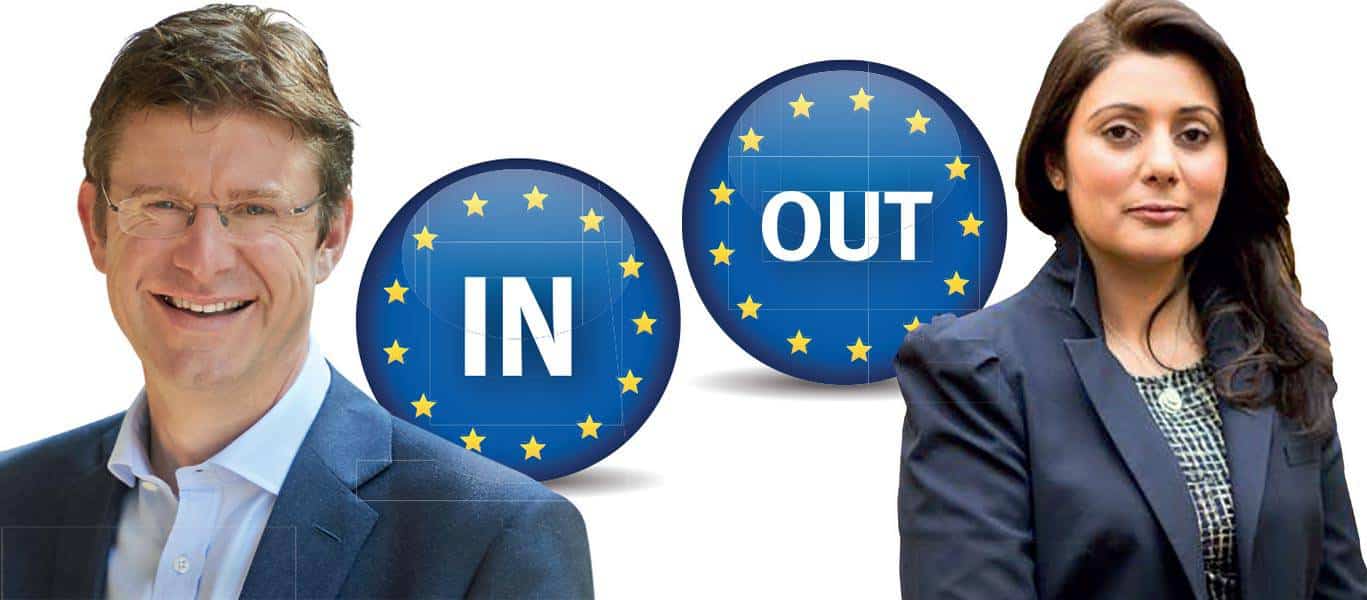The most important vote in a generation will be taking place next month (June 23) and whatever the electorate decides, the implications for this country will be monumental. Any decision is likely to be irreversible and will determine this country’s path for decades to come.
The Times believes it has a responsibility to give readers access to information that can help them make informed decisions when they reach the ballot boxes. For that reason we are taking part in three EU initiatives.
THE GREAT EU DEBATE: No one knows what the future will hold, how events will unfold with data being interpreted to suit the arguments of both IN and OUT campaigns. In order to help get to grips with the daily outpouring of information we are playing our part in staging The Great EU Debate in partnership with The Discussion Forum. The event will be hosted at the Assembly Hall on May 25 and chaired by ITN Political Editor Andy Bell.
QUESTIONS TO MPS: The IN and OUT campaigns are now in full swing, splitting parties and even the government, with polls showing the population is also becoming more polarised. Despite being in the same party Tunbridge Wells MP Greg Clark and Wealden MP Nus Ghani now find themselves campaigning for different sides.
In February we featured their views on Britain’s relationship with the EU. Both Mr Clark, who supports Britain remaining in the EU, and Ms Ghani, who supports leaving, put forward reasoned arguments in support of their positions.
At the time Mr Clark said: “I believe that we have a brighter future as a leading part of Europe than out of it. For me, it comes down to our national interest. We are a trading nation. Nearly half of all our exports go to countries in the European Union – the biggest free-trade zone in the world. Our jobs and our livelihoods depend on businesses large and small selling their wares to other countries.”
Ms Ghani, in contrast, argued: “The growing constraint on Britain to decide its own approach to issues such as prisons and policing is a dagger at the heart of sovereignty and a huge blow to the legitimacy of our Parliament. The truth is the EU has faced a massive crisis of legitimacy of its own for many years. And it’s a crisis that could envelop us all.”
Readers have since been invited to submit their own questions to be put to the Conservative MPs and the Times is currently in the process of compiling a balanced cross section. Questions such as what impact will Britain leaving the EU have on the City of London? How long will the exit process take? And will university research suffer or flourish outside of the EU? Answers from both MPs will be published in the coming weeks.
SCHOOL DEBATING: It is important to remember that despite the over 60s being the age bracket most likely to vote, it is those still at school who will live with the consequences longest. So, we decided to find out what the younger generation think about the EU issue. And we enlisted the help of Holly Stafford, a year 12 pupil at Bennett Memorial Diocesan School who we know through her ongoing work experience with this newspaper. We asked her to talk with others about staging a debate at the school with her peers.
She was given the go-ahead by the school and the debate took place yesterday (Tuesday). Members of the Senior Debating Team went head to head on the pros and cons of Brexit. Many of those who attended will be able to vote in the real referendum and they were invited to take part in an end-of-debate ballot on whether to stay in Europe or leave. They voted to stay in Europe.
Holly’s report on the proceedings will be featured in the newspaper next week, giving readers a small insight into what the younger generation is thinking.








